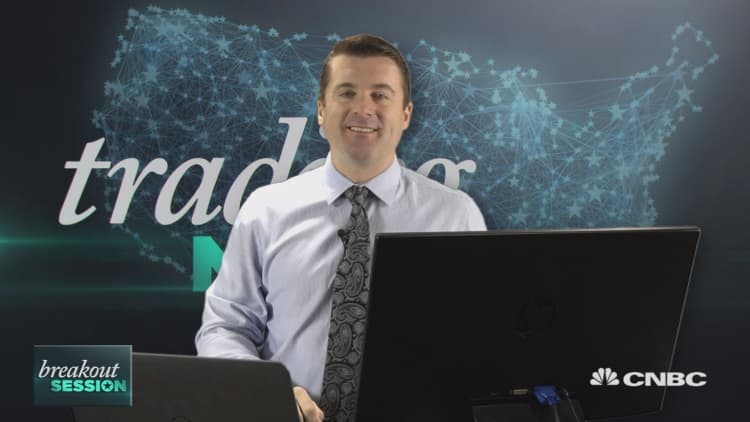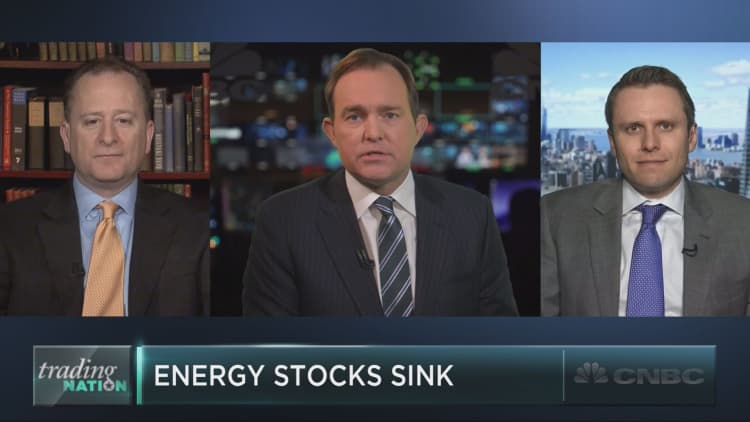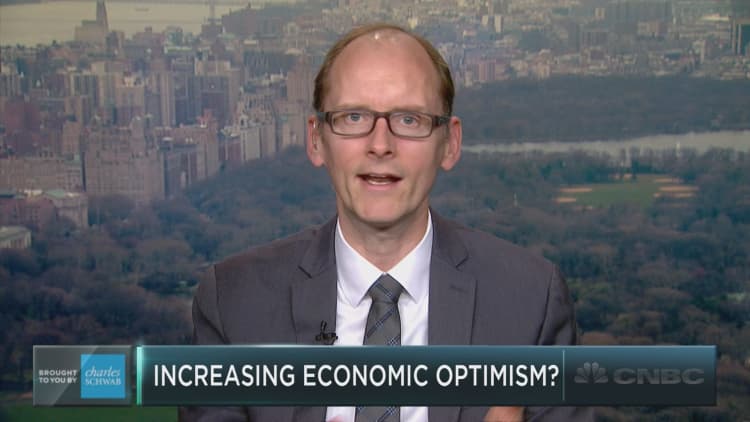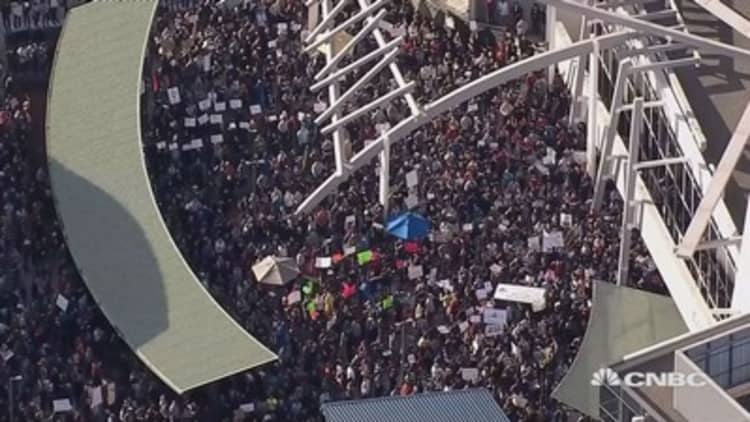


Stocks tumbled Monday after President Donald Trump signed an executive order last week restricting travel for individuals from seven Muslim-majority countries.
Several market watchers say the move points to protectionist policies on trade down the line, which could be bad news for many large American companies.
"Markets are taking this as a sign that this protectionism is quite real; markets are selling off," Todd Gordon of TradingAnalysis.com said Monday on CNBC's "Trading Nation."
Trump's election win spurred a great deal of market optimism, which many credited to his proposed policies on corporate taxes, regulations and infrastructure.
However, immigration and trade issues appear to have taken the spotlight, and the odds of a major tax cut or a significant infrastructure bill appear to be sliding — particularly as Trump's travel ban proves divisive even among congressional Republicans.
"The weekend's news is important, but is very difficult to quantify its economic impact," Peter Boockvar, chief market analyst at The Lindsey Group, wrote to CNBC in an email Monday. Still, "the protectionism talk is very disconcerting for markets."
After all, nearly half of the revenue earned by comes from abroad, so political moves against globalization are bad news for stocks. Declining relations with trading partners, or increased tariffs, would tend to hurt the market.
More generally Boockvar wrote that stocks have seen a "tremendous Trump honeymoon that officially ended this weekend," and that investors are now looking for the administration to detail its tax reform package.
The market is certainly looking for more details regarding Trump's tax and regulatory reform plans, echoed Paul Hickey, co-founder of Bespoke Investment Group, in a Monday phone interview.
Trump's policies on immigration were generally seen as a negative for the market, and Trump's executive order impacted the markets to the downside, he said, "but rather than the actions themselves, the fact that it's creating more distraction" as opposed to releasing solid information about tax and regulatory reform may become an issue.
"I think we've had a big run in the market; more than anything, people are looking for an excuse to sell things," Hickey added.
He noted that as far as sectors go, the technology space could be most negatively impacted by Trump's immigration ban, given technology companies' overseas employment. Defensive sectors appeared to be holding up in Monday trading, but sectors that surged after the election including financials and materials underperformed. Tech executives like Reed Hastings, CEO of Netflix, Apple CEO Tim Cook and Twitter CEO Jack Dorsey issued statements critical statements of the ban.
It has indeed appeared that until now, Trump was like "Teflon" to the American public, Jeffrey Saut, chief investment strategist at Raymond James, told CNBC in a Monday interview. But he observed that the administration's executive order had to some extent shaken the market.
Investor sentiment as measured by the American Association of Individual Investors dropped Monday, Saut observed, to its lowest level since May 2016. These moves come less than one week after the Dow Jones industrial average crossed the 20,000 milestone.

Gordon, for his part, is buying options spreads that will profit if the CBOE Volatility Index continues to rise.
"I am looking to hedge my long stock portfolio" by betting on a further rise for the VIX, which is an index that generally tracks market anxiety, and tends to move inversely to the S&P 500.
Major U.S. equity markets all opened in the red Monday for their worst performance of the year thus far. And while the move down isn't particular severe (the S&P 500, Dow Jones industrial average and the Nasdaq composite were all down roughly 1 percent during the trading session), the markets could continue to slump as investors digest the reality of Trump's protectionist policies impacting foreign trade relations following the market's post-election rally.





